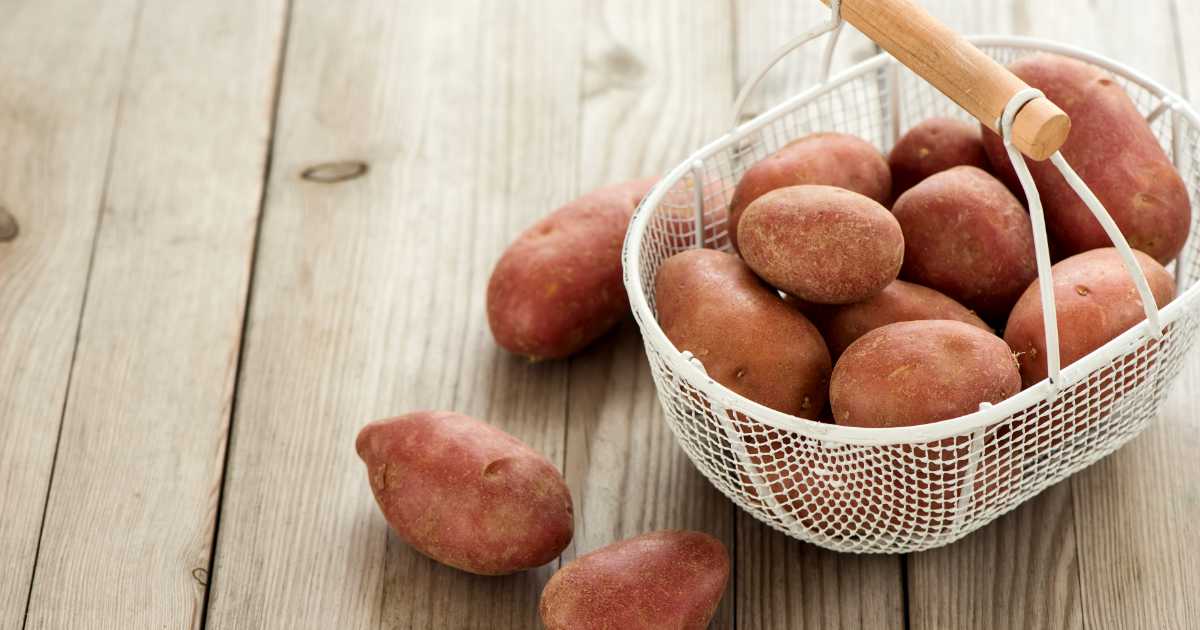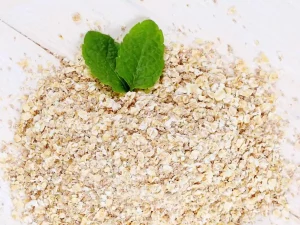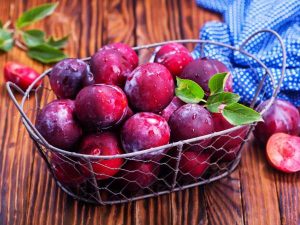Health Benefits of Potatoes

Money is the root of all evil, and yet it is such a useful root that we cannot get on without it any more than we can without potatoes.
Louisa May Alcott, novelist (1832-1888)
Potatoes are a funny vegetable that, no matter whether children or adults, both love them! Potatoes are not just a funny vegetable, but they are also a delicious and versatile one. You can cook them in so many different ways, and they always taste great. Whether you’re making French fries, chips, mashed potatoes, or simply boiling them, potatoes are always healthy.
One of the most versatile vegetables, potatoes, can be used in a wide variety of dishes. They are a favorite with children as they are filling and can be cooked in many different ways. As well as being a cheap and healthy option, potatoes are also packed with nutrients and have lot of health benefits.
Some common names of potatoes:
| Language | Name |
| English | Potato |
| German | Kartoffel |
| Dutch | Aardappel |
| Arabic | Al-batatis |
| Greek | Patáta |
| Hindi, Urdu | Aaloo |
| Chinese | Tǔdòu |
The world’s fourth-largest crop, potatoes are a staple for many people around the world. They are used in various dishes, from French fries to mashed potatoes, and have even been used in medicines. Despite this, potatoes are an underappreciated food. Many people are unaware of the health benefits they can get from the white tuber, which has recently been receiving a lot of attention.
Do you know after eating potatoes, cherry juice can quench your thirst and keep you away from soda drinks!!
Nutrients of Potatoes:
Potatoes are loaded with nutrients that can provide several health benefits. They are a good source of fiber, potassium, vitamin C, and vitamin B6. They also contain moderate amounts of iron and magnesium.
Nutrients of potatoes can vary according to different factors, such as how they are prepared/cooked, which type of soil they had been grown, and what kind of potatoes they are.
Talking about the nutrients of potatoes, the table below lists most of the nutrients.
| Name | Amount | Unit |
| Water | 83.3 | g |
| Energy | 243 | kJ |
| Protein | 2.57 | g |
| Total lipid (fat) | 0.1 | g |
| Carbohydrate | 12.4 | g |
| Fiber | 2.5 | g |
| Calcium | 30 | mg |
| Iron | 3.24 | mg |
| Magnesium | 23 | mg |
| Phosphorus | 38 | mg |
| Potassium | 413 | mg |
| Sodium | 10 | mg |
| Vitamin C | 11.4 | mg |
| Vitamin B6 | 0.239 | mg |
| Niacin | 1.03 | mg |
| Thiamin | 0.021 | mg |
| Vitamin B-12 | 0 | ug |
| Vitamin D | 0 | ug |
| Cholesterol | 0 | mg |
Note: Above values are against 100 grams of raw potato with skin. These values are taken from the U.S. Department of Agriculture’s database 2018. Source-1, Source-2.
Potatoes are a good source of potassium, vitamin C, and vitamin B6. Plus, they’re low in calories and high in protein and energy. So, why not include them in your meal plan?

Health Benefits of Potatoes
A surprising health benefit of potatoes is that they are great at disease prevention. Potatoes are high in antioxidants, which help to fight off disease and keep your cells healthy. They also contain many vitamins and minerals, including potassium, which helps to keep your blood pressure in check. Therefore, adding more potatoes to your diet can help to keep your body healthy and strong.
Fibers in food are essential for the effective operation of the digestive system. Potatoes don’t lack fibers at all. And the filling property of potatoes, due to their starchy content, helps you lose weight as it keeps you full longer.
Following are a few of the health benefits of potatoes:
Disease Prevention
Potatoes are a starchy vegetable that people often eat as a side dish. They are an excellent source of vitamins, minerals, and fiber. They are also a good source of antioxidants.
They are also a good source of carbohydrates. There are many health benefits of potatoes. One benefit is that they are a good source of vitamins and minerals. Potatoes are a good source of vitamin C, potassium, and magnesium.
They are packed with antioxidants, a compound that fights against “Free Radicals” from causing damage to your body cells. Diets containing high antioxidants lower the risk of cancer and different heart diseases.
Lower Blood Pressure
Another essential health benefit of potatoes is that they can help to lower your blood pressure. Studies have shown that when people supplement their diet with potatoes, their blood pressure levels reduce by about 4%. This is likely due to the fiber content of potatoes, which has shown to help increase the feeling of fullness and decrease hunger. This has led to the theory that eating more potatoes may help to reduce blood pressure in those who are already on a healthy blood pressure diet.
Digestive Health
Did you know that potatoes can actually be really good for your digestive health? They contain a lot of fiber, which is essential for keeping your digestive system healthy and functioning effectively. When you digest fiber, it helps to bulk up your stools and makes them easier to pass. This is why eating more fiber is often recommended for those who are having trouble passing stools.
Health benefits of Potatoes: Has Antioxidants
Potatoes are a root vegetable that originated in South America. They are now a staple in many diets around the world. Potatoes are a good source of vitamins, minerals, and fiber.
Additionally, potatoes are a good source of antioxidants, which can help protect against cell damage and reduce the risk of some chronic diseases.
Helps in Controlling Blood Sugar
They are a good source of vitamins C and B6, as well as potassium and manganese. They also contain a type of soluble fiber called resistant starch, which can help improve blood sugar control and reduce the risk of type 2 diabetes.
Another benefit of potatoes is that they are a good source of carbohydrates. This is important for people who need energy, such as athletes. Carbohydrates are also important for people who have diabetes.
Surprisingly Filling

Potatoes are a low-calorie food with a high satiety value, which means they can help you feel full and satisfied after eating them. Potatoes have several health benefits.
A Gluten Free Vegetable
Potatoes are naturally gluten-free in their raw form; most people do not show symptoms after consuming potatoes. Few people with gluten intolerance can experience the symptoms of indigestion after consuming a lot of potatoes.
Potatoes have different components that can cater to indigestion problems. Fiber and protein present in potatoes can bind gluten, making it harder for your body to digest it, thereby not triggering any gluten belief or itching problem.
However, you must be careful about how potatoes are prepared as they can be contaminated with gluten from other recipe ingredients.
An All rounder Starchy Tuber Vegetable
While potatoes are nutrient-rich food, they are also versatile food. They can be used in various dishes and recipes, making them easy food to add to your diet. In addition to being delicious on their own, potatoes can also be used to make other foods taste better. For instance, they can be used to make French fries, a delicious and nutritious food.
One of the versatile benefits of potato is it provides relief when cut and placed on minor skin burns.
Risks involved eating potatoes
Potatoes contain dietary fiber, which is vital for good digestion. Still, at the same time, overeating potatoes can cause stomach gas and make you feel uncomfortable.
Potatoes contain toxic compounds known as glycoalkaloids, and solanine and chaconine are present in potato plants. It’s very high in potato plant flowers. It decreases toward potato-tuber (the actual potato) in this order: Flowers, Sprouts, Leaves, Tuber Skin, Roots, Stems, and Tuber Flesh.
You should be careful when selecting/purchasing potatoes. Visually inspect them to see if they feel firm to touch and have not sprouted.

Only buy firm and hard potatoes and avoid one with sprouts. But if potatoes are firm and hard and still have some tiny green sprouts, then these can also be used but keep in mind to remove sprouts before cooking. Better to properly peel them.

If Potatoes are soft to touch and have wrinkles in them with sprouts, then that potato is toxic and poisonous to eat, as it’s in the process of growing.
Some common FAQs related to Potatoes
Potatoes are a good source of vitamins and minerals, including vitamin C, potassium, and manganese
If you are on a low GI diet, you should avoid potatoes.
Excess of everything is terrible. In general, potatoes are safe if you care about your weight gain. But you should consider preparation methods. Fried potatoes definitely have high cholesterol. Consider using baked or boiled potatoes.
You can cook them in many different ways, and they always taste great. Whether you’re making French fries, chips, mashed potatoes, or simply boiling them, potatoes are always healthy
If you feel raw potato is soft and sprouting, you should avoid it as its most toxin in this condition.
Potatoes must be stapled to other food, meaning they are most healthy when eaten with other foods.
You can eat potato skin, but in general, the skin should be avoided as it has a little bit higher value of glycoalkaloids than the tuber part of the potato, e.g., the actual potato.
Potatoes are a starchy vegetable, and gluten is found in grains like wheat, barley, rye, and others. So, Yes, Potatoes are gluten-free.
You can eat potatoes daily but within a safe amount of about 200 to 250 grams. Potatoes have a High glycemic index (GI), so people on a low GI diet should avoid potatoes daily.
The Bottom Line
In conclusion, potatoes have many health benefits. They are a good source of vitamins, minerals, and fiber. They are also a good source of carbohydrates. They have a low glycemic index, which is essential for people who need to maintain a stable blood sugar level.







